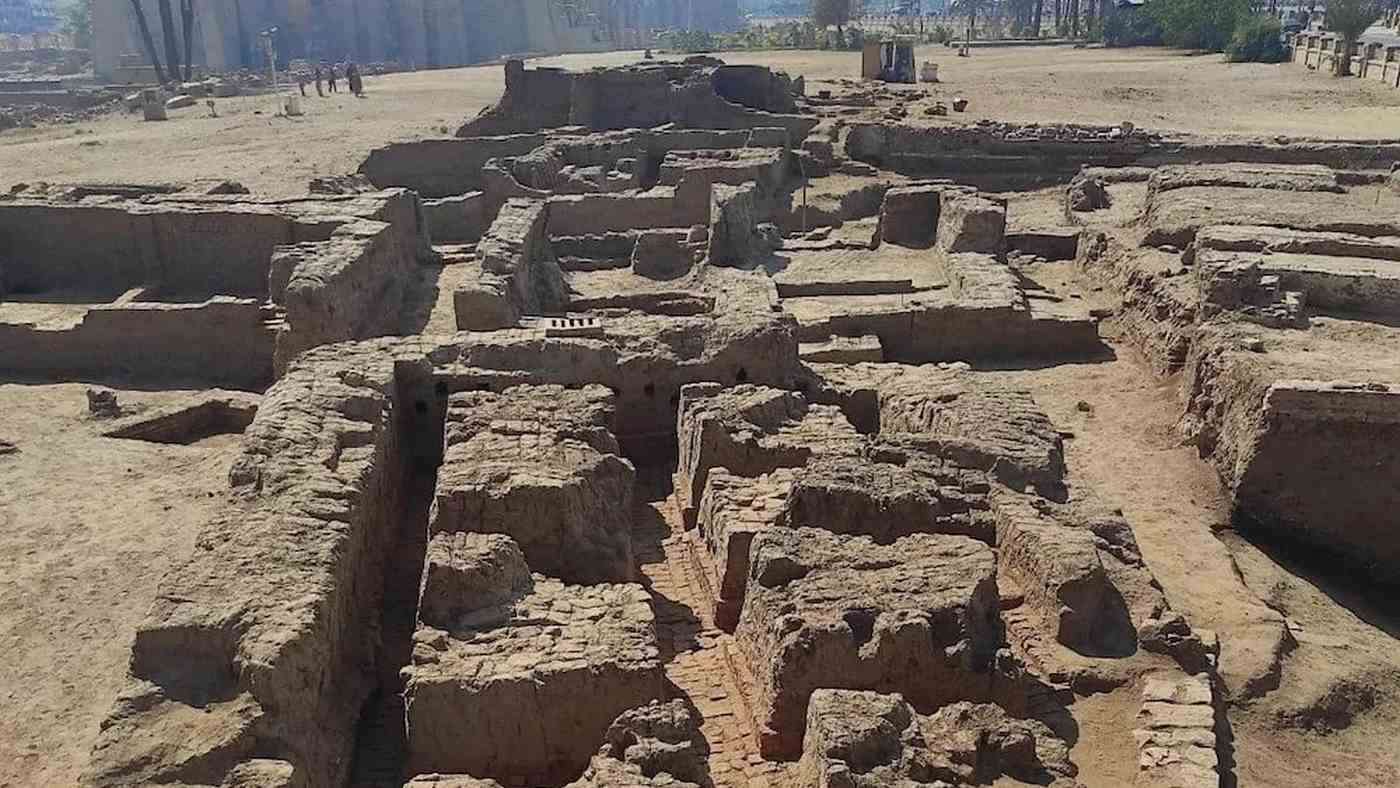Stolen Trove of Angkor Royal Jewelry Returned to Cambodia After Resurfacing in London
Many of the nation's historical treasures are returning after being stolen during the Khmer Rouge genocide.

Archaeologists in Egypt have just succeeded in completely excavating a small Roman city in the classical capital of Luxor, which contained workshops, homes, and "pigeon towers."
Dr. Mostafa Waziri from the Egyptian Ministry of Antiquities stressed the importance of the discovery, as it revealed the oldest Roman residential city on the eastern side of the modern-day Luxor Governorate, which is an extension of the ancient capital of Thebes.
The workshops for the manufacture and smelting of metals contained a number of pots, water bottles, flasks, grinding tools, Roman coins of copper and bronze, and bells.
Then there were the pigeon towers, which housed the birds as livestock. The ancestors of modern pigeons were rock doves, which preferred to nest in rocky cliffsides. Up in the tower, Roman pigeon keepers would place pots that the birds could use to build their nests.
اÙÙش٠ع٠أÙ٠٠دÙÙØ© سÙÙÙØ© Ùا٠ÙØ© بشر٠اÙØ£Ùصر .
— Dr Mostafa waziry (@mostafa_waziri) January 24, 2023
The discovery of the first complete residential city in eastern Luxor.#Egypte #Tweets #Luxor #tourism #Archaeology #heritage #StayTuned #explore #٠صر pic.twitter.com/gzldbWtcPM
اÙÙش٠ع٠أÙ٠٠دÙÙØ© سÙÙÙØ© Ùا٠ÙØ© بشر٠اÙØ£Ùصر .The discovery of the first complete residential city in eastern Luxor.#Egypte #Tweets #Luxor #tourism #Archaeology #heritage #StayTuned #explore #٠صر pic.twitter.com/gzldbWtcPM
In this video of Dr. Waziri explaining the site, the word "hammam" can be clearly heard, which is Arabic for baths.
Roman baths were found at this city back in the 1980s during excavations by a German-Egyptian team which included Jacek KoÅciuk, professor emeritus at the Wroclaw University of Science and Technology in Poland.
Dr. KoÅciuk sent Live Science the scientific work published on the excavations in 2011, which included the findings of the baths.
Dr. Waziri's team has dated the settlement to the 2nd and 3rd centuries CE, potentially during the reign of the influential Roman Emperor Diocletian (284 to 305 CE). At this date, Egypt was a Roman imperial province, and the days of the pharaohs were long gone.
SHARE This Exciting Find From The Ever-Busy Excavations At Luxor…
Be the first to comment